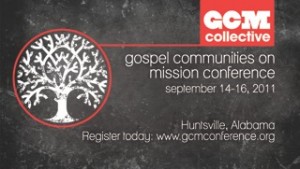 Rosamund was born just 24 hours ago. She carries her grandmother’s name and her mother’s beauty. A gangly twenty-one inches lined with almost eight pounds, she wraps up nicely, staring at us with steely blue eyes or crying with them shut through the night. She has not started our rhythms. She fumbles around, helpless apart from those who care for her, particularly her mother, who continues to fill her with life.
Rosamund was born just 24 hours ago. She carries her grandmother’s name and her mother’s beauty. A gangly twenty-one inches lined with almost eight pounds, she wraps up nicely, staring at us with steely blue eyes or crying with them shut through the night. She has not started our rhythms. She fumbles around, helpless apart from those who care for her, particularly her mother, who continues to fill her with life.
As our third child, I guess this could all be passé. And in some ways, its clear we’ve been down this road before, but not with Rosamund. Each child brings their own life, unique circumstances, and eventual personality into the life of a parent. Yes, we’re just beginning to discoverer those, but they are here, some more subtle than others. One in particular–Rosamund arrived peacefully in the midst of some lingering fear.
Your Delivery Isn’t Going to Go Well
Two days before Robie discovered she was pregnant, she was driving by a hospital, when she was assaulted with this thought: “You will have a baby there, and it will not go well.” I was in Uganda, where I heard about Robie’s pregnancy over a video-less Skype call a couple of days later. I didn’t not, however, hear about the foreboding premonition until I returned.
Can you imagine struggling with that thought for nine months of pregnancy? Was it true or false? Is it from God, the Devil, or my own fearful subconscious? What am I to do with this fear?
Eventually, I returned home and we talked about the bizarre premonition. We talked about what kind of “won’t go well,” considering outcomes that disturb your emotional center. We both envisioned scenarios of losing our baby and losing one another. I struggled in how to respond. What to say?
Does God Scare Us With Suffering?
Does God send premonitions about suffering? Wouldn’t that be mean? Actually, he does send them but not because he is mean. Consider a couple of these kinds of premonitions from the Bible:
- Joseph interpreted a dream about a famine that actually happened, and he became instrumental in helping many survive it (Genesis 41).
- Isaiah was told he would be rejected by his people, but carried God’s message of judgment and grace anyway (Isaiah 6).
- Peter was told that he would die for following Christ, and purportedly followed him to death by an upside-down crucifixion (John 20).
- Paul was regularly told by the Spirit that in “every city that imprisonment and afflictions” awaited him, and he insisted on taking the gospel to as many different cities and regions as possible (Acts 20:22-24).
- All who desire to live a godly life will be persecuted (1 Timothy ).
Although all these texts didn’t spring to mind in my conversation with Robie, they slowly began to make sense of how to respond. First, I realized that, if this was a warning from God, it wasn’t to strike fear in our hearts, but to nurture faith. God warned Joseph, Isaiah, Peter, and Paul, not to scare them but to draw them closer to himself. He’s a personal God with an agenda of love to bring us closer to trusting him and push us further away from trusting ourselves. This truth, that our God is a God who instills faith not fear, was a comfort to us. We clung to his promise to that God by trusting Isaiah 41:10
fear not, for I am with you;
be not dismayed, for I am your God;
I will strengthen you, I will help you,
I will uphold you with my righteous right hand.
So, when suffering and trial enter our lives, announced or unannounced, God is working, not for our fear but for our faith. He is our God, one we can trust, who is lovingly present in trial, drawing us close, lifting us up with his strong and righteous hand.
Second, notice how each of these premonitions had a redemptive turn, an expression of God’s grace. God’s agenda was bigger than the individuals he warned. He wanted to increase their faith, in suffering, in order to bless others. Joseph fed thousands; Isaiah offered hope of redemption, Peter led the Early Church, Paul spread the gospel to cities across the known world, and God want’s to use our sufferings to display his grace to others.
We’ve had the opportunity to spread grace at the hospital. When things were going unnecessarily long in labor, Robie didn’t bark orders from fear but extended grace from faith. Fortunately, our little Rosamund was born without complication in that hospital. Things went well, not badly. The nine months of uncertainty were a battle between fear and faith. Fear diminished and faith grew. We see that God’s plans are bigger than our own, and so is his trustworthiness.


 Rosamund was born just 24 hours ago. She carries her grandmother’s name and her mother’s beauty. A gangly twenty-one inches lined with almost eight pounds, she wraps up nicely, staring at us with steely blue eyes or crying with them shut through the night. She has not started our rhythms. She fumbles around, helpless apart from those who care for her, particularly her mother, who continues to fill her with life.
Rosamund was born just 24 hours ago. She carries her grandmother’s name and her mother’s beauty. A gangly twenty-one inches lined with almost eight pounds, she wraps up nicely, staring at us with steely blue eyes or crying with them shut through the night. She has not started our rhythms. She fumbles around, helpless apart from those who care for her, particularly her mother, who continues to fill her with life.